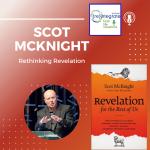By Tim Weinhold (originally published June 20, 2016)
Of all the ancient fables, that of the goose that lays golden eggs is almost certainly the one most prized by business people. In the classic version of the tale, a farmer has a goose that each day lays a golden egg. Over time the farmer grows rich, but also greedy. No longer content with a single daily egg, he kills the goose to get all the gold in one fell swoop. But he finds no gold inside and realizes, too late, that he has sacrificed his gold-laying goose for naught.
Business people identify deeply with this parable for a couple of reasons. First, they see the goose as a metaphor for their business. This makes total sense. After all, business is the only arena of human endeavor that creates wealth. Second, business people understand the fragility of business as a wealth creation engine. They know that trying to take too much wealth from a business can easily kill it. As a result, they often vigorously oppose government taxation and regulation of business, or the efforts of labor unions to win more pay for workers. In all these cases, business people see themselves as vigilant guardians against those whose foolishness or greed risks killing off the golden goose of business.
How ironic, then, that business people themselves are at risk of killing the very goose they prize by doing business in ways that threaten the long-term viability of business itself. In doing so they are operating in direct opposition to the counsel of Scripture, especially by misunderstanding and contravening the Bible’s foundational wisdom about what drives and sustains prosperity.
Scripture’s View of Prosperity
Scripture portrays a decidedly communitarian vision of abundance. Its ideal society is one in which provision and prosperity are widespread, not one in which the wealth of a fortunate few contrasts starkly with the privation of their neighbors. In fact, Scripture is quite critical of hoarded wealth — for example, in the parable of the rich man and Lazarus, or of the foolish farmer who built bigger barns to better store up a future of luxury and ease.
No, Scripture’s vision of prosperity is that of a society where scarcity barely exists and the vast majority of people find their needs well met. We see this especially in Deuteronomy. Much of the book is given over to Moses’ farewell exhortations to the Israelites as they prepare to enter the promised land. In several different passages he vividly portrays the prosperity that awaits, provided Israel follows God’s commands.
Chapter 28 offers an especially compelling vision of biblical prosperity:
All these blessings will come on you and accompany you if you obey the Lord your God: You will be blessed in the city and blessed in the country. The fruit of your womb will be blessed, and the crops of your land and the young of your livestock — the calves of your herds and the lambs of your flocks. Your basket and your kneading trough will be blessed. You will be blessed when you come in and blessed when you go out … The Lord will send a blessing on your barns and on everything you put your hand to. The Lord your God will bless you in the land he is giving you … The Lord will grant you abundant prosperity … The Lord will open the heavens, the storehouse of his bounty, to send rain on your land in season and to bless all the work of your hands. (28: 2-12, NIV)
This is a picture of provision for all the people, not just for a fortunate few. It envisions a society in which wealth is broadly deployed so that the needs of all are well met, not one in which great wealth is concentrated at the top while many others struggle. This view of prosperity reflects God’s concern for economic justice — i.e., his determination that everyone share fairly in the fruits of the land and their labor. But God’s intention for widespread and abundant provision also reveals a clear understanding of what really creates and sustains a prosperous society. And it’s not business … it’s consumers.
The True ‘Job Creators’
I misunderstood this for much of my business career. I believed the prevailing rhetoric that business creates jobs, business drives the economy forward, business propels the standard of living upward. And there is an element of truth to this view. But absent (reasonably affluent) consumers, business has little ability to create jobs or advance the economy. In fact, without consumers who can afford to buy, business can’t even survive. It is (reasonably affluent) consumers, more than business, who drive a sustainable, expanding economy.
Nick Hannauer, serial entrepreneur and successful investor (including as the first non-family-member investor in Amazon), makes this point explicitly: “In a capitalist economy, the true job creators are consumers, the middle class.” He adds:
Rich people don’t create jobs, nor do businesses, large or small … there can never be enough super-rich Americans to power a great economy. The annual earnings of people like me are hundreds, if not thousands, of times greater than those of the median American, but we don’t buy hundreds or thousands of times more stuff. My family owns three cars, not 3,000. I buy a few pairs of pants and a few shirts a year, just like most American men … I can’t buy enough of anything to make up for the fact that millions of unemployed and underemployed Americans can’t buy any new clothes or cars or enjoy any meals out. Or to make up for the decreasing consumption of the vast majority of American families that are barely squeaking by, buried by spiraling costs and trapped by stagnant or declining wages.
This has become a consensus view among economists. Pulitzer Prize-winning author Hedrick Smith notes in his recent book, Who Stole the American Dream?: “The analysis of modern economists is that high wages paid to tens of millions of middle-class Americans in the postwar era were the engine of economic growth. Good, steady pay, and job security, they say, are the drivers of strong consumer demand, and strong demand stimulates economic growth.” Nobel Prize-winning Princeton economist Paul Krugman echoes this view, describing the mid-20th century economy as “the best economy America has ever had. It was an economy that seemingly provided jobs for everyone. What’s more those abundant jobs came with wages that were higher than ever, and rising every year.”
Selfishness Over Sharing
Which brings us back to our golden goose parable. Business creates wealth. But unless it shares that wealth appropriately with those whose labor helps create it, business begins to sow the seeds of its own demise. During the Great Prosperity middle decades of the 20th century, American business operated under an implicit covenant with its workers: ‘Work hard, increase your productivity and our profits, and we will ensure that your wages increase attractively in the bargain.’ And so from 1948 to 1973, as the productivity of all non-farm U.S. workers grew by 96.8 percent, the hourly compensation of the average worker rose by 93.7 percent. In other words, workers got a solid share of the profits their productivity helped deliver.
But that all changed in the 1980’s. American business embraced selfishness rather than sharing by deciding that the true purpose of a corporation is to maximize the wealth of its owners. Now every dollar that could be squeezed out of wages could go instead to enriching those for whom the corporation existed — its shareholders (especially senior management shareholders). Hedrick Smith writes: “By the mid-1990s, most CEOs had junked the Old Economy notion that the destinies of labor and management should be linked and that they should share roughly equally in economic and productivity gains.” As a result, although the productivity of the U.S. workforce rose 80.1 percent between 1973 and 2011, hourly wages for the average worker, adjusted for inflation, stayed flat — the same in 2011 as in 1978. Despite three decades of record corporate profits, pay increases for workers had disappeared.
Scripture, however, makes clear that selfishness turns out badly in the end. And the consequences of business selfishness have been increasingly toxic — for the economy, for society, and even for business itself. As former Secretary of Labor Robert Reich writes in his book, Beyond Outrage:
The underlying problem isn’t that most Americans have priced themselves out of the global/high-tech labor market. It’s that most Americans are receiving a smaller share of the American pie. This not only is bad for the majority but also hobbles the economy. Lower incomes mean less overall demand for goods and services, which translates into lower wages in the future. The basic bargain [between corporations and workers] once recognized that average workers are also consumers and that their paychecks keep the economy going. We can’t have a full-fledged recovery and we can’t sustain a healthy economy until that bargain is restored.
This is no small matter. Hedrick Smith writes: “Sharing the gains from America’s economic growth from 1979 to 2006 in the same way they were shared from 1945 to 1979 would have given the typical middle-class family $12,000 more per year. Overall, 80 percent of Americans, from the bottom through the entire middle class, would have earned $743 billion more a year.” That’s three quarters of a trillion dollars every year — money that would mostly have gone into purchasing goods and services, in turn driving job and income growth, instead of accumulating in the burgeoning bank accounts of CEOs, Wall Street managers, and the rest of the economic elite.
But that didn’t happen, of course. Business chose a different pathway. Reich describes this choice and its effects through the lens of Ford Motor Company:
In 1914, Henry Ford announced he was paying workers on his Model T assembly line $5 a day—three times what the typical factory employee earned at the time. The Wall Street Journal termed his action “an economic crime,” but Ford knew it was a cunning business move. The higher wage turned Ford’s autoworkers into customers who could afford to buy Model Ts. In two years Ford’s profits more than doubled. That was then. Now Ford Motor Company is paying its new hires about half what it paid its new employees a decade ago. It’s the same story across America. At GE, new hires earn $12 to $19 an hour, versus $21 to $32 an hour earned by workers who started at GE a decade or more ago.
Unfortunately, this has become widespread business practice. The Commerce Department reports that employee pay is down to the smallest share of the economy since the government began collecting wage and salary data in 1929. Meanwhile, corporate profits now constitute the largest share of the economy since 1929. Bottom line: the ‘selfishness gap’ between business profits and workers’ pay has never been greater (see chart below). As a direct result the middle class continues to shrink and the economy, as measured by the creation of (good) jobs and incomes, continues to struggle. Meaning the golden goose that actually brings prosperity — well-paid workers — continues to be slowly starved by business people.
Drumbeat of Criticism
As a direct consequence, across the ideological spectrum capitalism is being put in the crosshairs — and found wanting:
- “Capitalism is failing to produce what was promised … We have a system that is working overtime to move money from the bottom and middle to the top.” This from Nobel Prize-winning liberal economist, and current President of the International Economic Association, Joseph E. Stiglitz, in his book, The Price of Inequality.
- And this from the other side of the political spectrum, Harvard economist Larry Summers (who lost out as the choice to be the new Federal Reserve Chairman because he was viewed as too closely tied to Wall Street): “The enormity of the wealth gap between the top and the middle raises a critical problem of legitimacy for American capitalism.”
- Perhaps especially telling for the future, more young people now say they prefer socialism than capitalism (43% to 32%).
This growing drumbeat of unhappiness not only has much to do with the surprising strength of Donald Trump and Bernie Sanders in the 2016 presidential campaign. It also means that business leaders may eventually find that rather than being the guardians of business, they were the very ones who sacrificed its long-term sustainability on the altar of short-term profits and share price. And sacrificed the well-being of American society in the bargain.
Still, there may be reason for hope. Our current Secretary of Labor, Thomas Perez, wrote recently:
Consumer demand is the lifeblood of our economy, accounting for 70 percent of GDP. When you put more money in the pockets of working families, they spend it on groceries, gas, school supplies, and other goods and services. And that helps businesses grow and create jobs. So many forward-looking employers, large and small, understand this. I’ve talked to several CEOs — from a recycling company in Indiana, a furniture company in Kentucky, a brewing company in Colorado and more — who believe paying higher wages is both the right thing to do and part of a successful business model.
Or as Craig Jelinek, CEO of Costco (which, not coincidentally, pays its workers triple that of its competitor, Walmart) puts it: “I just think people need to make a living wage with health benefits. It puts more money back into the economy and creates a healthier country. It’s really that simple.”
God agrees. His vision all along has been that the wealth that business creates must be broadly shared if business — and society — are to prosper sustainably. This is, in fact, the essential thrust of one of the most important business passages in Scripture, Deuteronomy 8:17-18. Here God, through Moses, links together the wealth creation capability gifted uniquely to business with the ‘blessed to be a blessing’ character of his covenants and kingdom. In other words, God’s clear message to business people is that his wealth creation gift is meant first and foremost to bless (many) others. Put more pointedly, God loves to see wealth deployed broadly, but hates to see it hoarded to benefit only a few.
Hopefully business leaders will learn this lesson before the American middle class shrinks to insignificance. And before business people find that it was their own foolishness and greed that killed their golden goose.
The material provided herein has been provided by Eventide Asset Management, LLC and is for informational purposes only. Eventide Asset Management, LLC serves as investment adviser to one or more mutual funds distributed by Northern Lights Distributors, LLC, member FINRA. Northern Lights Distributors, LLC and Eventide Asset Management are not affiliated entities.
4308-NLD-4/25/2016









